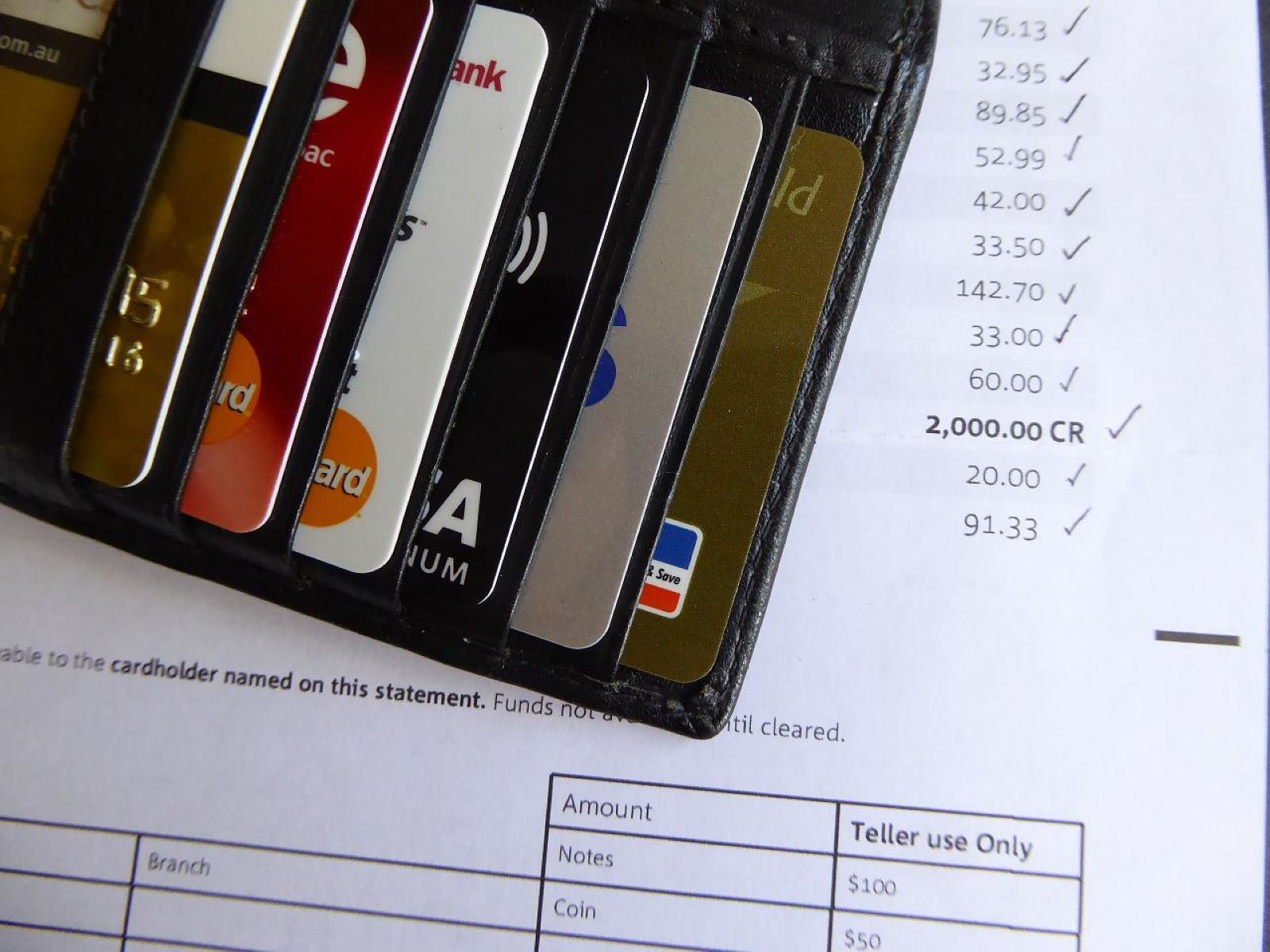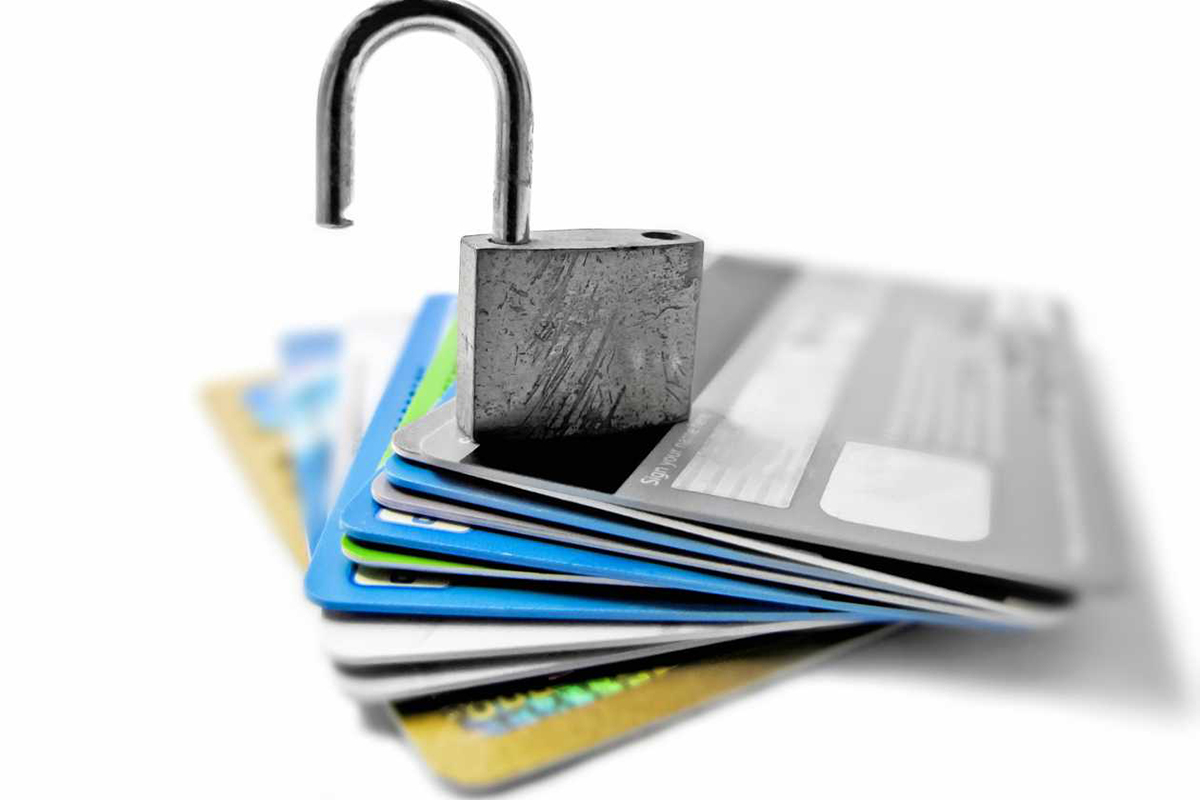

Finance
What Does Decline Mean In Credit Card
Modified: March 10, 2024
Learn what decline means in credit card finance and how it can impact your financial situation. Understand the causes and potential solutions to address card declines.
(Many of the links in this article redirect to a specific reviewed product. Your purchase of these products through affiliate links helps to generate commission for LiveWell, at no extra cost. Learn more)
Table of Contents
Introduction
When it comes to managing your finances, credit cards have become a vital tool in our modern world. They provide convenience and flexibility, allowing us to make purchases online, in-store, and even overseas. However, there can be instances when a credit card transaction is declined, causing frustration and confusion for both consumers and merchants.
In this article, we will explore the meaning of credit card decline and delve into the various factors that can contribute to a declined transaction. We will also discuss the impact of credit card declines on both consumers and merchants, as well as provide useful tips to resolve and avoid these issues.
Understanding credit card decline is crucial because it affects our ability to complete transactions and manage our financial obligations. From unexpected error codes to temporary holds, there are several reasons why a credit card may be declined. By gaining a deeper understanding of these factors, we can better navigate the world of credit card transactions and ensure a smoother financial experience.
So, if you’ve ever wondered why your credit card has been declined or what steps you can take to prevent it from happening, read on. Let’s explore the world of credit card declines and equip ourselves with the knowledge to manage them effectively.
Definition of Credit Card Decline
Credit card decline refers to the situation when a credit card transaction is unsuccessful and not authorized by the card issuer or the financial institution. In simpler terms, it means that the payment for a purchase or transaction using a credit card has been rejected or denied.
This decline can happen for a variety of reasons, including insufficient funds, incorrect card details, expired card, suspicious activity, or even technical issues. When a transaction is declined, it essentially means that the cardholder does not have the available credit, the transaction violates the cardholder’s preset spending limits, or there is some other issue with the card or the transaction itself.
It is important to note that credit card decline is different from a credit card cancellation or suspension. A decline occurs in real-time when a transaction is being processed, while cancellation or suspension usually happens as a result of the cardholder’s request or due to non-payment, fraud, or other policy violations.
When a credit card is declined, whether at a physical point of sale or during an online transaction, it can be frustrating for both the consumer and the merchant. The consumer may face embarrassment, inconvenience, or even difficulty in accessing the desired product or service. The merchant, on the other hand, loses a potential sale and may have to deal with dissatisfied customers.
Understanding the reasons behind credit card declines and having the knowledge to address and resolve them can help mitigate these issues and ensure smoother transactions for both parties involved. In the following sections, we will explore the various causes of credit card declines and the steps to address them effectively.
Causes of Credit Card Decline
There are several factors that can contribute to a credit card decline. Understanding these causes can help both consumers and merchants identify and address the issue promptly. Here are some common causes of credit card declines:
- Insufficient Funds: One of the most common reasons for a credit card decline is insufficient funds in the cardholder’s account. If the available credit limit on the card is lower than the amount being charged, the transaction will be declined. This often occurs when cardholders exceed their credit limit or have outstanding balances that have maxed out their available credit.
- Expired Card: Credit cards have expiration dates to ensure the cardholder’s information is up to date and to enhance security. If a credit card is expired, any transaction attempted with that card will be automatically declined. Cardholders need to ensure they have an active and valid card to avoid this issue.
- Incorrect Card Details: Sometimes, credit card declines occur due to inputting incorrect card details during a transaction. This can include entering the wrong card number, expiration date, CVV code, or billing address. Even a small error in these details can result in a declined transaction.
- Suspicious Activity: Financial institutions have sophisticated fraud detection systems in place to protect cardholders from unauthorized transactions. If a transaction appears suspicious or out of the ordinary, it may trigger a decline. This can happen when a card is used in a different location, for a high-value purchase, or for a sudden increase in activity.
- Temporary Hold: In some cases, a credit card decline may occur due to a temporary hold placed by the card issuer. This can happen when a merchant attempts to authorize a larger transaction than what the cardholder typically spends or when there is a discrepancy in the transaction details. The cardholder may need to contact their bank to release the hold and complete the transaction.
It is important to note that these causes are not exhaustive, and there may be other factors contributing to a credit card decline. Additionally, technical issues, network connectivity problems, or issues with the merchant’s payment processing system can also result in a declined transaction.
In the next section, we will explore some of the common error codes associated with credit card declines to provide further insights into the reasons behind them.
Common Error Codes for Credit Card Decline
When a credit card transaction is declined, it is often accompanied by an error code or message that provides additional information regarding the reason for the decline. These error codes can vary depending on the credit card network and the issuer. Here are some common error codes you may encounter when experiencing a credit card decline:
- Invalid Card Number: This error code indicates that the card number entered during the transaction is invalid. It could be due to a typographical error or potentially using an incorrect or outdated card.
- Invalid Expiration Date: If the expiration date entered is incorrect or the card has expired, this error code will be triggered, resulting in a declined transaction.
- Insufficient Funds: This error code occurs when the available credit or funds on the card are insufficient to cover the transaction amount. It usually indicates that the cardholder has exceeded their credit limit or has outstanding balances that limit their available credit.
- Suspected Fraud: In cases where suspicious activity is detected, such as a sudden increase in transaction volume, use of the card in an unfamiliar location, or high-value purchases, the transaction may be declined with this error code. The card issuer suspects fraudulent activity and takes preemptive measures for cardholder protection.
- Cardholder Inactive: If a credit card has been inactive or dormant for an extended period, the card issuer might deactivate it to mitigate the risk of unauthorized use. When a transaction is attempted with an inactive card, this error code will be generated.
It is important to pay attention to these error codes as they provide valuable information about the cause of the credit card decline. By understanding the specific error code, consumers can take appropriate action, such as contacting the card issuer or updating card details, to resolve the issue and facilitate successful transactions.
Now that we have explored the common causes and error codes associated with credit card decline, let’s examine the impact of such declines on consumers and merchants in the next section.
Impact of Credit Card Decline on Consumers
Experiencing a credit card decline can have various impacts on consumers, both in terms of their immediate experience and their overall financial well-being. Here are some of the key impacts of credit card declines on consumers:
- Embarrassment and Inconvenience: When a credit card transaction is declined, it can be embarrassing for the cardholder, especially if they are making a purchase in a public setting. It can also be inconvenient, as the consumer may have to find an alternate payment method or abandon their intended purchase.
- Limited Access to Funds: A credit card decline can restrict a consumer’s access to funds, particularly if the declined transaction was for a critical expense. This can result in delayed or missed payments, causing further financial challenges down the line.
- Potential Damage to Credit Score: If a credit card decline is due to high credit utilization or missed payments, it could negatively impact the consumer’s credit score. A lower credit score can make it more challenging to obtain loans or credit in the future.
- Inability to Complete Transactions: Credit card declines can prevent consumers from completing transactions, whether it’s purchasing essential goods and services or making online payments for subscriptions or utilities. This can disrupt their daily lives and create frustration and inconvenience.
- Calls for Customer Support: When a credit card decline occurs, consumers often need to contact their card issuer or financial institution to resolve the issue. This can result in additional time and effort spent on phone calls, emails, or online chats, which can be a source of frustration for many consumers.
It is important for consumers to be proactive in resolving credit card decline issues promptly. This can involve paying attention to error codes, contacting the card issuer for assistance, reviewing account balances and spending limits, and ensuring accurate card details are used during transactions.
Now, let’s explore the impact of credit card declines on merchants in the next section.
Impact of Credit Card Decline on Merchants
Credit card declines can significantly impact merchants, affecting their revenue, customer satisfaction, and overall business operations. Here are some of the key impacts of credit card declines on merchants:
- Lost Sales: The most immediate and obvious impact of a credit card decline on a merchant is the loss of a potential sale. When a transaction is declined, the merchant does not receive payment for the goods or services provided, resulting in a direct loss of revenue.
- Customer Dissatisfaction: A credit card decline can lead to frustrated and dissatisfied customers. They may be inconvenienced by the declined transaction, leading to negative customer experiences and potentially damaging the merchant’s reputation. Unhappy customers may choose to take their business elsewhere in the future.
- Operational Costs: Handling credit card decline situations can involve additional time and resources for merchants. This can include staff efforts to resolve the issue with the customer, customer service inquiries, and potential inventory management challenges. These operational costs can add up and impact the profitability of the business.
- Chargeback Risks: In some cases, customers may dispute a declined transaction and initiate a chargeback, seeking a refund or resolution through their card issuer. This can result in additional costs for the merchant, including chargeback fees and the potential loss of the disputed amount.
- Potential Fraudulent Activity: While credit card declines can help prevent fraudulent transactions, some fraudulent individuals may attempt to manipulate or exploit the decline system. Merchants need to remain vigilant and have robust fraud prevention measures in place to protect themselves from potential fraudsters.
To minimize the impact of credit card declines, merchants can implement strategies such as providing clear and accurate transaction instructions, ensuring their payment systems are up to date and secure, offering alternative payment options, and providing prompt and effective customer support to assist customers facing declines.
Now that we understand the impact of credit card declines on both consumers and merchants, let’s explore the steps to resolve credit card decline issues in the next section.
Steps to Resolve Credit Card Decline Issues
Encountering a credit card decline can be frustrating, but it is important to address and resolve the issue promptly to ensure seamless transactions. Here are some steps you can take to resolve credit card decline issues:
- Verify Card Details: Double-check the card details you entered during the transaction to ensure they are accurate. Pay attention to the card number, expiration date, CVV code, and billing address. Even a minor error in these details can result in a declined transaction.
- Contact the Card Issuer: If you are unsure why your transaction was declined, reach out to your card issuer or financial institution for assistance. They can provide insights into the decline and help troubleshoot the issue.
- Address Insufficient Funds: If your credit card decline is due to insufficient funds, review your credit limit, outstanding balances, and other factors that may affect your available credit. Consider paying off outstanding balances or increasing your credit limit to avoid future declines due to insufficient funds.
- Confirm Card Activation and Expiry: Ensure your credit card is active and not expired. If your card has expired, contact your card issuer to obtain a new card and update your card details with any necessary merchants or service providers.
- Monitor for Fraudulent Activity: If a credit card decline is due to suspected fraud, it is crucial to take immediate action. Contact your card issuer to report the issue and follow their instructions to protect your account from unauthorized activity.
- Consider Alternative Payment Methods: If your credit card continues to be declined, explore alternative payment methods such as using a different credit card, a debit card, or payment platforms like PayPal or mobile payment applications.
Resolving credit card decline issues may require patience and persistence. It’s important to remember that each situation may have unique factors, so follow the specific instructions provided by your card issuer or financial institution to efficiently resolve the issue.
Now, let’s explore some tips to help you avoid credit card decline situations in the first place.
Tips to Avoid Credit Card Decline
Preventing credit card declines can save you time, frustration, and potential embarrassment. By following these helpful tips, you can minimize the chances of experiencing a credit card decline:
- Maintain a Sufficient Credit Limit: Regularly review your credit card’s available credit limit and ensure it is not maxed out. Keeping your credit utilization ratio low can help prevent declines due to insufficient funds.
- Update Card Details: Keep your credit card information up to date, including your address, contact details, and expiration date. This helps ensure accurate information is provided during transactions and reduces the risk of declines.
- Monitor Your Account: Regularly monitor your credit card account, checking for any suspicious activity or unauthorized transactions. Promptly report any discrepancies to your card issuer to prevent further issues.
- Notify Your Card Issuer: If you plan to make international or large transactions that deviate from your normal spending patterns, let your card issuer know in advance. This proactive step can prevent unnecessary declines triggered by suspected fraudulent activity.
- Use Secure Websites: When making online purchases, ensure you are using secure websites with encryption to protect your sensitive information. Look for the lock symbol in the address bar and use reputable retailers to reduce the risk of declined transactions.
- Keep Your Card Secure: Protect your credit card information by keeping your physical card secure and not sharing your card details with unfamiliar or untrusted sources. This reduces the likelihood of fraudulent transactions and potential declines.
- Choose Alternative Payment Methods: In situations where credit card declines are a persistent issue, consider using alternative payment methods such as debit cards or digital wallets. These options provide additional flexibility and may be more reliable for certain transactions.
By implementing these preventive measures and being proactive in managing your credit card, you can significantly reduce the chances of experiencing a credit card decline.
Now, let’s wrap up our discussion on credit card declines.
Conclusion
Credit card declines can be frustrating and inconvenient for both consumers and merchants. Understanding the causes of credit card declines, such as insufficient funds, expired cards, incorrect card details, suspicious activity, or temporary holds, is crucial for effectively managing these situations.
For consumers, a credit card decline can result in embarrassment, limited access to funds, potential damage to their credit score, and inconvenience. It’s essential for consumers to be proactive in resolving credit card declines by verifying card details, contacting card issuers, and addressing issues such as insufficient funds or expired cards.
Merchants also bear the brunt of credit card declines, experiencing lost sales, customer dissatisfaction, operational costs, and the risk of chargebacks. Implementing strategies such as providing clear transaction instructions, maintaining secure payment systems, and offering alternative payment methods can help mitigate the impact of credit card declines on merchants.
To resolve credit card decline issues, consumers should double-check card details, contact their card issuer, address insufficient funds, confirm card activation and expiry, and be vigilant against fraudulent activity. Avoiding credit card declines in the first place can be accomplished by maintaining a sufficient credit limit, updating card details, monitoring accounts, notifying card issuers of unusual transactions, using secure websites, and choosing alternative payment methods when necessary.
By following these tips and taking proactive steps, both consumers and merchants can minimize the occurrence of credit card declines, ensuring smoother transactions and a positive financial experience.
So, the next time you encounter a credit card decline, remember that understanding the causes, taking necessary action, and being proactive can help you overcome the challenges and navigate the world of credit card transactions more effectively.














